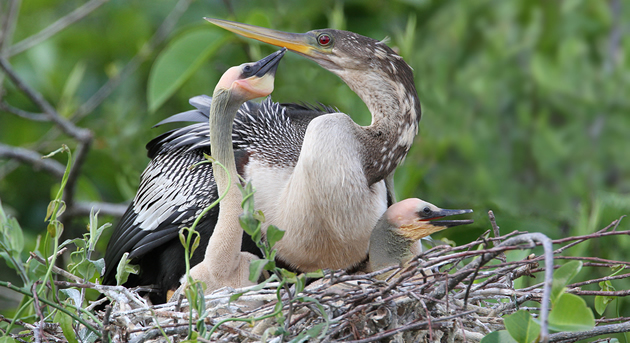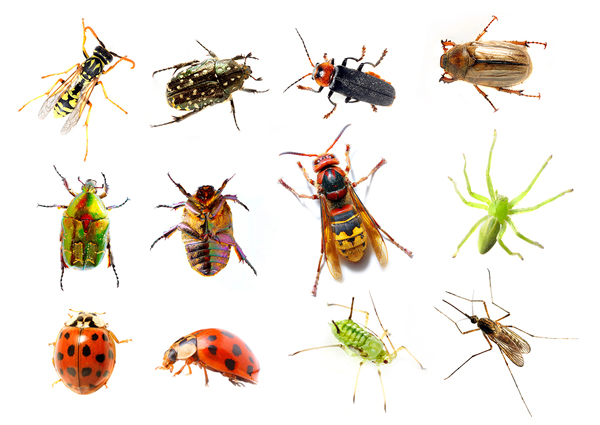Wildlife
- Squirrel
- Rat
- Bat
- Mice
- Raccoon
- Dead Animal
- Birds
- Snake
- Beaver
- Opossums
- Bobcat
- Armadillo
- Wildlife Management Programs
Domestic Animals
Pest Control
Trash Removal
Animal Control Agency
The Animal Control Agency (ACA) is your source for Animal control and removal of domestic and wild animals. This also includes pest control and general information to eliminate what ever problem you may be having.
If you are currently dealing with domestic or wildlife problems here are some quick numbers to get direction and resolutions to your animal or insect problems:
- Florida - Domestic Animals ( Cats and Dogs ): 305-884-1101
- Florida - Wildlife Removal, Control (Squirrels, Bats, Rats, etc): 877-427-1524
- Georgia - Domestic Animals ( Cats and Dogs ): 706-790-6836
- Georgia - Wildlife Removal, Control (Squirrels, Bats, Rats, etc): 877-427-1608
- Miami & Ft Lauderdale - Pest Control Services (Termites, Roaches, etc): 786-251-9640
- Palm Beach & West Palm Beach - Pest Control Services (Termites, Roaches, etc): 877-590-0462

Female American Anhinga With Young At Nest - Everglades National Park, Florida
Florida is home to an amazing array of wildlife, and the habitats in which they live and thrive. With over 700 terrestrial animals and many thousands of terrestrial insects and other invertebrates, Florida literally is teeming with wildlife.
Note: Property management companies Boca Raton, Trash Removal Services Boca Raton. The cleanout service may be needed for a number of reasons.
These multitudes of species are dependent upon the highly productive natural habitats of Florida, ranging from the tropical coral reefs of the Keys and the magnificent Everglades "river of grass" to the awe-inspiring array of first-magnitude springs and the quiet beauty of the rolling sandhills.
Florida's wildlife and human population are encountering each other more often than ever before. As humans develop more open space and wildlife habitat is reduced and fragmented, encounters between humans and wildlife become more common. For most people, observing wildlife is a thrilling experience, but when an animal causes damage or attempts to share your living space, that thrill can turn to irritation or fear.
Just like us, birds and other animals are doing their best to make a living and raise their young. Developing an appreciation and understanding of your wild neighbors can help you learn to accept them and live in harmony with them without resorting to extreme measures. Tips for keeping the awe in your wildlife experience.
- Feeding wildlife accustoms them to humans and is a certain death sentence for bears, alligators and other species. Making simple accommodations will often solve the problem of marauding raccoons and other critters. Remove the free meal attractant by feeding pets indoors, installing baffles on bird feeder poles and fastening trash cans lids with rubber straps.
- Additional modifications, like constructing a bear-resistant garbage can caddy and securing compost piles, gardens and beehives behind bear-resistant electric fencing, will discourage black bears.
- Bringing pets inside at night will keep them safe from hungry predators.
- Cover possible entryways with hardware cloth to exclude squirrels, bats and other animals scouting out your home for a safe place to raise young.
Although relocation is sometimes necessary, trapping and relocating wildlife is a last resort and only warranted if all other measures have failed and an animal becomes a threat. Removing one animal may only serve to open up territory for others to move in. Rather than getting your feathers ruffled, make simple accommodations to avoid wildlife conflicts then relax and enjoy the wonders of wildlife in your own backyard.
If you are currently dealing with domestic or wildlife problems here are some quick numbers to get direction and resolutions to your animal or insect problems:
- FLORIDA - DOMESTIC ANIMALS ( CATS AND DOGS ): 305-884-1101
- FLORIDA - WILDLIFE REMOVAL, CONTROL (SQUIRRELS, BATS, RATS, ETC): 877-427-1524
- GEORGIA - DOMESTIC ANIMALS ( CATS AND DOGS ): 706-790-6836
- GEORGIA - WILDLIFE REMOVAL, CONTROL (SQUIRRELS, BATS, RATS, ETC): 877-427-1608
- MIAMI & FT LAUDERDALE - PEST CONTROL SERVICES (TERMITES, ROACHES, ETC): 786-251-9640
- PALM BEACH & WEST PALM BEACH - PEST CONTROL SERVICES (TERMITES, ROACHES, ETC): 877-590-0462

Pests in your home are annoying, potentially embarrassing and can in some situations create an unsafe environment for young children and pets. Just knowing they are there may be enough to keep you awake at night.
Pests and diseases of agriculture threaten market access, our natural environment, public health and our food supply. Know the signs of emerging and existing pests and diseases to help protect Florida.
Each year, Florida becomes host to as many as three or four exotic pests, sometimes more. Consider those that have arrived in recent years including the Asian citrus psyllid, vector of citrus greening, a disease that has been very damaging for the citrus industry in Florida; the redbay ambrosia beetle, vector of Laurel Wilt, a fungal disease that stops the flow of water in host trees (redbay, avocado and other trees in the laurel family) causing leaves to wilt and eventually die; and the chili thrips, an insect pest that causes stunted, irregular growth on ligustrum and other species, and many more.
Note: Cleanup your home to get it ready for rental or for sale in. Estate Cleanout Services is Coral Gables #1 company.
South Florida has its own share of exotic invaders, including the Nasutitermes corniger termite, a Caribbean termite that builds nests above ground in trees; the ficus whitefly, an insect that has defoliated ficus hedges; and even the python, an invader that threatens to upset the ecology of the Everglades.
There are many points of entry for these exotic pests including hurricane winds, shipping activities and international travel. Some of those that begin in South Florida are halted by the cooler weather of Central Florida winters, while others are expected to eventually spread further north. It's hard to imagine rooting for a cold winter, but in reflecting on these pests, it may not be a bad idea.
Some of the problems that plague commercial agriculture also are a problem for Florida gardeners. The same citrus psyllid that attacks orange groves doesn't discriminate against dooryard growers. It feeds on the new flushes of growth that typically occur in late February, late May and mid-September in North Central Florida, and if it is carrying the citrus greening disease, it will infect new trees. Usually several years are required to develop answers that address production problems while ensuring the solutions do not upset the local ecology.
Pests and Diseases of Concern
- AFRICANIZED HONEY BEE
- ASIAN AMBROSIA BEETLE
- BEAN PLATASPID
- BOLL WEEVIL
- CASSAVA LACE BUG
- CITRUS BLACK SPOT
Domestic Animals

The word "pet" evokes images of cats curled up on laps, loyal dogs fetching sticks and furry rodents running on wheels. Even with the occasional bird, reptile or arachnid mixed in, pets are pretty predictable for the most part. But as the popularity of exotic pets grows, more animal lovers are legally welcoming formerly wild creatures into their homes.
A pet (or companion animal) is an animal kept primarily for a person's company or protection, as opposed to working animals, sport animals, livestock, and laboratory animals, which are kept primarily for performance, agricultural value, or research. The most popular pets are noted for their attractive appearances and their loyal or playful personalities.
Pets commonly provide their owners (or guardians) physical and emotional benefits. Walking a dog can supply both the human and pet with exercise, fresh air, and social interaction. Pets can give companionship to elderly adults who do not have adequate social interaction with other people. There is a medically approved class of therapy animals, mostly dogs, that are brought to visit confined humans. Pet therapy utilizes trained animals and handlers to achieve specific physical, social, cognitive, and emotional goals with patients.
The most popular pets are likely dogs and cats, but people also keep house rabbits, ferrets; rodents such as gerbils, hamsters, chinchillas, fancy rats, and guinea pigs; avian pets, such as canaries, parakeets, and parrots; reptile pets, such as turtles, lizards and snakes; aquatic pets, such as tropical fish and frogs; and arthropod pets, such as tarantulas and hermit crabs.
